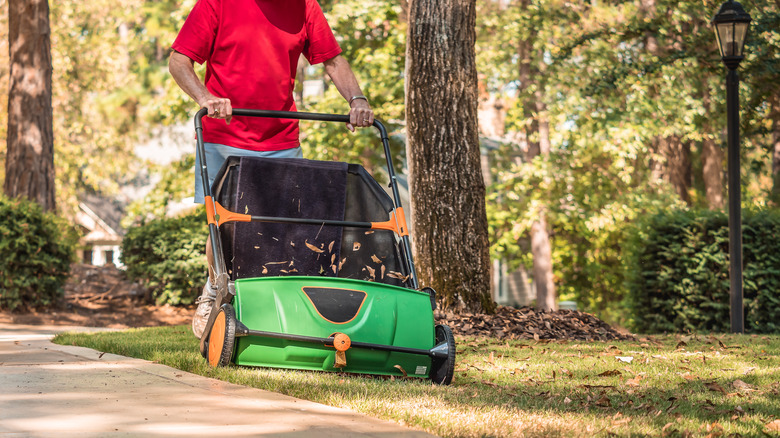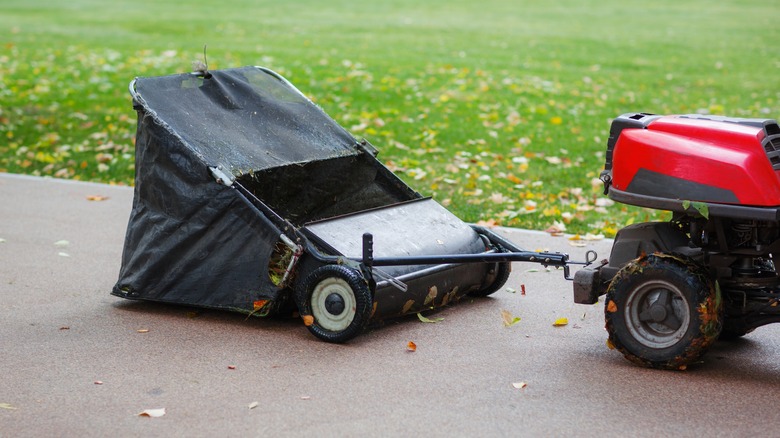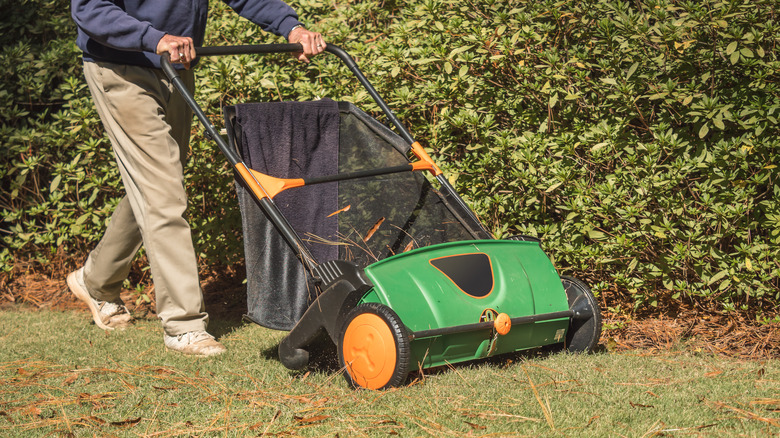Are Lawn Sweepers Worth Buying?
Lawn care is the chore that seemingly never ends, and while it can be a source of pride for some, it is often a total pain for others. You may have wondered if there is a better way to collect grass clippings, leaves, and other debris. And there is: the lawn sweeper. This clever gadget uses a series of rotating brushes to comb through your lawn, lifting any debris and setting it into an attached hopper bag. Think of it as a mechanical rake that makes cleaning up fallen leaves a breeze and saves both your back and your time.
There are two primary types of lawn sweepers. The first is a push lawn sweeper, which is (as you might have guessed) manually operated. This style is ideal for smaller yards or those who don't mind a little exercise. Naturally, they are more affordable and easier to store, but they require a little more effort on your part. The second is a tow-behind sweeper, which attaches to a riding mower or lawn tractor. These are larger, more durable, and perfect for larger properties since they let you clean a huge area in a single, comfortable ride.
Lawn sweepers can be nice to have on hand when leaf-filled autumn rolls around, as you can use the fallen leaves to give garden soil an extra boost after sweeping them up. But like all tools, they have downsides as well. So, let's take a look at the pros and cons of lawn sweepers and see whether or not they are worth buying.
The pros: efficiency and a pristine finish
One of the most compelling reasons to invest in a lawn sweeper is the undeniably huge amount of time and effort it saves you. Instead of spending hours raking and bending over to pick stuff up, you can clear your lawn in a fraction of the time with a sweeper (particularly if you are using a tow-behind model). It turns a physically demanding task into one that's more tolerable, especially if you know the best time of year to use a lawn sweeper and avoid doing so when the fallen debris is wet. Beyond just the time-saving benefits, lawn sweepers are typically also more efficient at cleanup; the spinning brushes comb through the grass, lifting not only large leaves and twigs but also small and easy-to-miss debris like pine needles.
This thoroughness leads to a cleaner and healthier lawn. Leftover clippings and the like can potentially smother grass, preventing it from getting all the sunlight, water, and air it needs to thrive. Over time, that debris can also lead to thatch buildup, which is just asking for pest issues. Lawn sweepers make it easy for your lawn to breathe and grow strong and vigorous. Most models even have adjustable brush heights, so you can set yours to match the type of debris you are collecting, whether it's a light layer of clippings or a dense blanket of fall leaves.
The cons: limitations and practicality
While lawn sweepers offer many advantages, they are not without their drawbacks. One of the most common issues is their limited effectiveness with certain types of debris. For example, they can struggle with very wet or heavy items like sodden leaves, which could potentially clog the brushes or weigh down the hopper. They are also not ideal for grabbing rocks or branches, so you will still need to do a pre-sweep walk around your property to clear out any troublesome debris manually. Likewise, the performance of a sweeper is highly dependent on there being dry conditions and even having a (relatively) smooth lawn surface; if your yard is hilly, full of obstacles, or otherwise uneven, you may find push sweepers to be inefficient and difficult to maneuver.
Another noteworthy point to consider is storage and maintenance. Tow-behind models, while powerful, are undeniably bulky and large, and will take up space in your garage or shed. And honestly, even slightly more compact push sweepers still take up a good amount of room. What's more, the moving parts (think brushes, gears, and wheels) require regular cleaning and maintenance to ensure they perform properly and don't wear out before their time.
Ultimately, while lawn sweepers can be a super useful tool for the right homeowner, they won't work for every yard. It all depends on the size and condition of your lawn, whether or not you have proper storage space for it, and whether you're willing to do some light prep work and regular maintenance.


